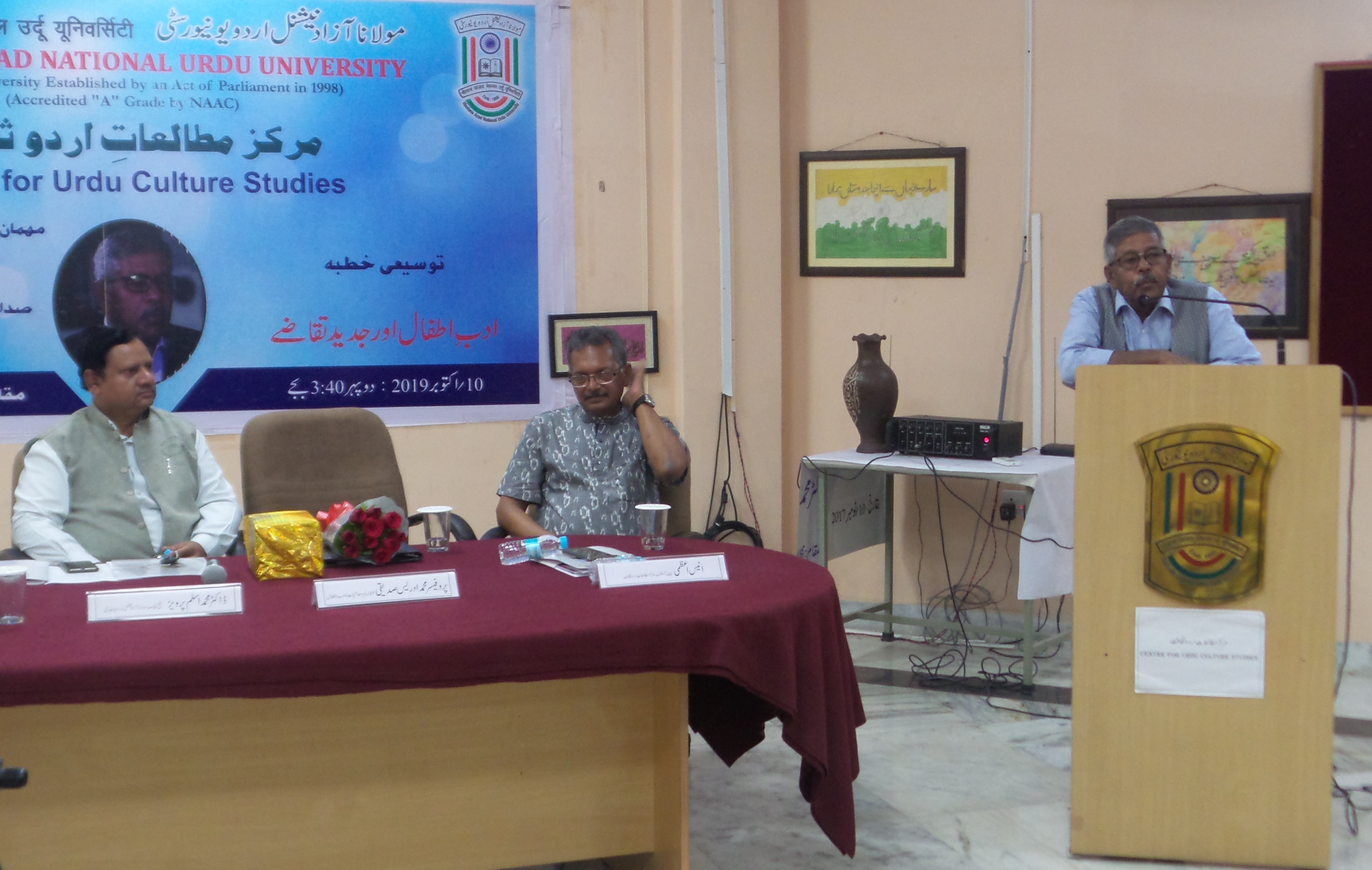 Press Release Oct 11, 2019
PressRelease
Press Release Oct 11, 2019
PressRelease
Western experts have devised various techniques to keep intact the interest of children in literature. They use science fiction, audio visual and talking books to keep their interest in reading alive. Prof. Mohd. Idrees Siddiqui from Toronto, Canada, expressed these views yesterday while delivering extension lecture on “Adab-e-Atfal aur Jadeed Taqaze” (Children literature & Contemporary demands) organized by Centre for Urdu Culture Studies (CUCS) of Maulana Azad National Urdu University (MANUU)
Prof. Siddiqui an Eminent economist & expert in children literature while delivering lecture said that kids interest in reading books is on decline, it is a universal phenomena. They spent most of their times on electronic gadgets, smart phones, playing video games and searching social media sites. To counter the trend and to keep connected the children with the literature, psychologists have developed books using modern technologies. Success of J.K. Rowling’s Harry Potter series is an example, he said. Books are also being prepared using specific technology even for children with mental and physical challenges. It is the need of the hour that such books should also be prepared in Urdu and other Indian languages, he suggested. Efforts should be made to bring out the Children from virtual world of web to the world of books, he remarked.
Earlier, Prof. Mohd. Zafaruddin, Director, CUCS welcomed the guest and Mr. Anis Azmi, Chief Consultant, Centre convened the programme.
Dr. Firoz Alam, Assistant Professor proposed vote of thanks. Mr. Habeeb Ahmed, Museum Curator & Mr. Zubair Ahmed, Semi Professional Assistant supervised the arrangements. Large number of students & staff attended the lecture.
Maulana Azad National Urdu University has declared Mr. Shahul Hameed M.P, son of Mr. Mammikutty M.P qualified in Doctor of Philosophy in English. He has worked on the topic "Postcolonial Spiritual Literature in English” under the supervision of Prof. Syed Mohammed Haseebuddin Quadri, Department of English, MANUU.
english_press_release_11_10_2019.pdf